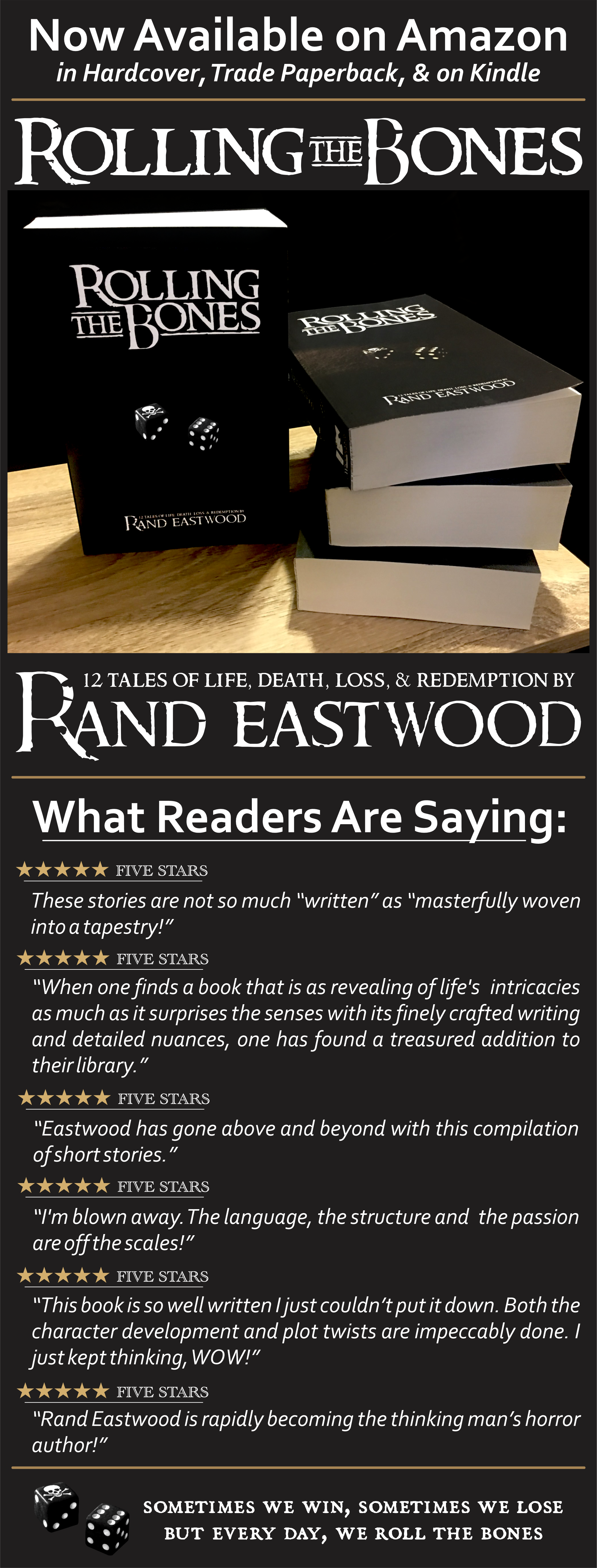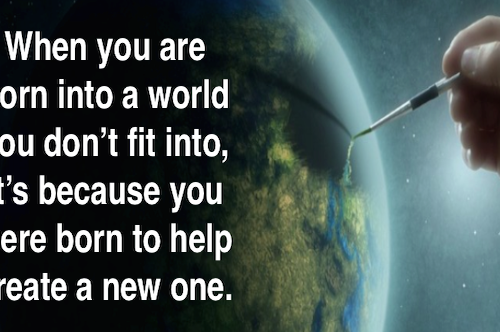I recently read A Naked Singularity by Sergio de la Pava, and it was one of the most engaging novels I’ve read in recent years. I’d have to say the author is nothing short of genius.

A Naked Singularity by Sergio De La Pava
That being said, I’d also have to say that out of the entire 864-page tome, one scene in particularly resonated with me: when two public defense attorneys, Dane and Casi, are discussing the injustice and insanity of the war on drugs, and one of them proposes the idea of ending it by criminalizing all drugs—which obviously confused his colleague, so he went on to explain, which I’ve transcribed below, because he makes such a good point (which, by the way, very much parallels the point made by Graham Hancock in my previous article Men Who Would Be Gods).
(For the sake of concision, I’ve taken the liberty to include just those portions of the dialog which focus on the subject at hand, and discard the irrelevant portions; and for the sake of clarity, I’ve added the names of who’s speaking, as sometimes I found it difficult to follow in the book):
Dane: “This is how I bet [the war on drugs reached its] present situation. At some point someone told a politician that it would be to his advantage to make drug policy one of his core issues. What this always means of course is a get-tough policy since tough is the only thing to get if you want to have a job. The idea caught on with those of his ilk and soon everyone had to have their own get-tough policy. These things always rocket to the top because anyone who opposes is accused of being a drug-lover or something similar, highly intelligent things like that. In this case the ascension of these harsh, anti-drug policies was abetted by the fact that most feel drugs really are a legitimate problem that leads to all sorts of social ills, so on the surface the steps seem necessary. . .War was declared on drugs, soldiers were drafted, money spent, and new laws passed. Sentences for drug-related offenses were increased and more resources were devoted to enforcing the existing illegality of drug use and sales. So what resulted?. . .Here’s what you’ve got: I handle only felony cases, and I currently have about sixty or seventy of them in various stages. Of these cases, fifty to sixty percent are drug-related. Now when I say drug-related I’m not referring to criminal acts that arise out of drug addiction, I mean cases where the top count is either the possession or sale of drugs. My understanding is that these numbers generally reflect what other similarly-situated attorneys experience. If that’s the case, then we can assume that about one out of every two people charged with a serious crime in this city is a prisoner of this war on drugs. Of course one of the first things to note about this high volume of drug arrests is their ultimate impotence. I don’t know of anyone claiming that the drug trade in this city has been curtailed in any meaningful way. There are hundreds of drug spots in the city each of them moving thousands of dollars worth of drugs a day. The aforementioned fifty percent seem to be highly fungible and all these four-to-eight sentences mean is that someone else steps in and starts preparing for their state bid.”
Casi: “True.”
“So who are these people the police round up when they go on rooftops with binoculars, or pose as strung-out addicts to buy five-dollar vials, or beg some poor sap to sell them their extra bottle of methadone? Well one thing we know about them is they don’t have any money. We know this first of all because we’re their attorneys. It’s hard to imagine any group of people being held in less esteem than we are by our clients. The overwhelming majority of them feel that we are either bumbling incompetents—after all if we’re otherwise why aren’t we in private practice making real money?—or, even worse, actively conspiring with the DA against them as evidenced by the fact that we know and appear to act friendly towards a lot of these people who are prosecuting them. Throw in that we are employed, at least in their eyes, by the same government. We also know that people tend to greatly overestimate the efficacy of private attorneys. Now despite these time-honored perceptions, I find that I have no shortage of drug clients and that other attorneys, who I’m sure inspire far less confidence than I do, also have an abundance of drug cases. What this means is that these people, who were arrested for participating in the drug trade and who presumably profit from what is unquestionably a highly lucrative industry, are unable to scrounge up enough money to hire an attorney in a city that has more attorneys than mosquitoes, and this is the case even though they firmly believe their failure to do so will result in them going to prison for long stretches. Throw in the added fact that a substantial majority of this same population is being held in jail on bail the equivalent of which I spend in assorted bars in a typical week. Really though I only say all this in the interests of being thorough since we don’t really need this recitation of facts to tell us that the majority of these defendants are indigent right? Seeing is believing and we can see that these people are primarily toothless drug addicts or twerpy teens who think they’re being hard and ultimately these are the people that are getting sent upstate and who the police are cracking down on. So what do you say about this situation Casi? Someone like [your client] peripherally participates in a drug sale in exchange for the grand sum of one dollar and now he’s doing three to six.”
Casi: “I think a DA might say don’t sell drugs that way you don’t have to worry about being treated fairly by our judicial system since you won’t be arrested I think that’s what they might say.”
Dane: “And that kind of statement is always fairly persuasive I must admit.”
Casi: “And it has the added benefit of making the speaker sound cynical and tough thus shielding him from accusations of naïveté, which is like the worst quality you can have, and all the while the speaker still feels morally superior because he doesn’t sell drugs so chalk that up as another reason why he’s a good person.”
Dane: “Of course the problem, and I use the term loosely because I don’t give the slightest what happens to these people, is this Casi. We’ve already said that a lot of these people out there selling drugs, and seemingly a higher percentage of those arrested, are themselves addicted to drugs. And naturally the two things, the fact that the person is addicted to drugs and the fact that they have been arrested for participating in a drug sale or the possession of drugs, do not exist independent of each other but instead the person is possessing or selling drugs because they are addicted to them. Given that fact, how much free will, of the kind people like your speaker love to take shelter in, is actually involved here? We know, for example that a mother will leave her newborn alone in her apartment for days to go buy and smoke crack. Addicts will go days without eating to save their money for crack…Now haven’t you ever wondered what smoking crack feels like? Ever reasoned that it must be one of the greatest feelings in the world to cause such extreme behavior in the name of its pursuit?”
Casi: “I guess.”
Dane: “So [the question is] whether non-violent behavior such as directing willing buyers to willing sellers in order to feed what appears to be an extreme compulsion should give rise to these sentences and the collateral effects these sentences have on the affected communities.”
Casi: “Don’t use drugs, just say no to them, that same DA might say, that way you avoid becoming addicted and all the other horrors you’ve described that end with you going to state prison. As for the teen twerp, he’d tell him to go to school, get ahead et cetera and he won’t feel compelled to get involved in a dirty business that can destroy his life. Those seem to be the kind of things these pointless fucks say.”
Dane: “Now that one’s laughable. Again I don’t actually care about the so-called human toll but it does pain me to see the rules of logic violated. I assume your speaker is referring to not using drugs initially since we’ve already discussed how apparently difficult it is to stop using a drug like crack cocaine once you’ve started—a feat the likes of which is almost invariably beyond the will-power capabilities of the speaker of such a statement by the way and which they would readily admit if they were being honest with themselves. One advantage the speaker will have, however, is that he will most likely never have used a drug like crack. So what that person will essentially be saying is don’t do something I’ve never done and have no interest in doing and which abstinence therefore, to me, seems easy. Of course, that apparent ease is built on a fallacy and one that is created by money and this takes me to my proposed solution.” (He checks his watch, an undeniable Rolex). “You see, what the overwhelming majority of these people can’t say is that they don’t use drugs or that they’ve never used drugs. So I say the answer, certainly the most entertaining one at any rate, isn’t legalization but rather criminalization. I’ll show you what I mean. First, let’s outlaw all drugs and see what happens, what do you say? Of course, the first thing we’ll have to do is define what we mean by the term drug in this context. How’s this? For the purposes of our new law, an illegal drug will be any substance ingested by a person that has the effect of, and which is taken for the purpose of, altering that person’s physiology in a manner that person deems beneficial and which is taken in the absence of physical pain or malfunction. There you have it. Unless you had a legitimate medical purpose, and I’m talking exclusively about maintaining your corporeal health since all sorts of non-nutritive, highly-altering substances are susceptible to justification in the name of that ever-elusive mental health, you would not be allowed to use any of the substances you’ve grown to first know, soon love, and finally worship. Now I would happily wager that, operating under this new definition, every adult you know is on drugs so what would happen in the days following the implementation of this new law? How about utter chaos?”
Casi: “But—”
Dane: “That’s right, try utter chaos! I believe we’d see open revolt in the streets. You might as well outlaw eating. The only thing that would compare would be if you took Television and computers away from them. Think of the substances people would have to give up. Talk about kicking the crutches out from under a nation of invalids. Take your average dipshit to see what I’m talking about. The rooster crows and now this clown has some rising and shining to do, must report to his cubicle to ride that carpal tunnel. Only he was up the entire previous night worrying about how he’s going to get that big promotion his wife wants so his energy level is currently nil. Well no matter really because he heads into his marbletop kitchen, the one with the center island, to brew your parental homeland’s second most popular export—”
Casi: “How do you—”
Dane: “He guzzles his coffee and the caffeine kickstarts his limited brain so he’s ready to face the day. This drug gives him energy that he wouldn’t have otherwise. Let’s examine this closely because I can tell from your look that although you know where I’m going with this, you’re having trouble getting past the admittedly benign appearance of this situation. Remember he doesn’t ingest this drug because he’s sick and the drug serves a medicinal purpose. He’s taking this drug because it will make him feel a certain way i.e. it will make him feel, at least in some sense, energetic as if he had gotten a good night’s sleep the night before. Any run-of-the-mill coffee drinker will admit this. Put another way, this person’s body has a highly normal reaction to its circumstances, only its owner doesn’t like this reaction, is not willing to be discomfited in any way, so he takes a substance that allows him to avoid the unpleasantness for the moment. Of course, as is always the case, there’s a cost and any hardcore caffeine user will tell you that if they discontinue use they are rewarded with consistent migraine-level headaches. So perhaps the apparent benignancy of the situation was misleading. After all what kind of substance, when spurned by a former lover, takes its revenge by attacking the spurner’s head? Unconvinced?”
Casi: “Consummately so, move on counselor.”
Dane: “Well you can see where this is going as our now-energetic protagonist is in his office waiting for the meeting that will decide his fate. Of course he’s incredibly nervous, what with the wife and all, and his anxiety, abetted by his earlier drug use, is climbing steadily. Luckily he’s the sort who’s always prepared and he has just the thing for this situation. What he whips out are these little sticks. The sticks are specially-formulated so that when sucked on in the manner of a nursing infant they deliver among other things the required drug which is nicotine. Now nicotine is just what the doctor ordered so to speak because although it is, like caffeine, a cerebral stimulant it has the useful property of being the only known drug that reduces anxiety without diminishing affect and this is good. Remember that with someone like dipshit, anxiety, whether justified or not, is a constant companion and as a result the sticks become a constant presence as well, creating both a physical and psychological need in the user that ensures their lofty status as beloved chemical appendage. The drug works, not surprising given its popularity, that is to say the user’s brain is altered in the way he wished, a way he finds pleasurable and a way that can eventually be summed up as going from needing nicotine to not needing it. This is critical. Ultimately, as is the case with all of the drugs I’ll discuss, the physiological effects of the drug become unimportant and the only relevant physical and psychological states become need and the absence of need. Moreover, the latter state will ultimately only truly be achieved when the patient has just recently ingested the drug. Thus satiated, our friend can survive his meeting and any other obstacles that may come his way. Made of stern stuff this guy no? Of course the end of the meeting requires either celebration or consolation. In this city there are over ten thousand locations where you can buy, then imbibe, a liquid form of these nouns. Now when it comes to drugs favored by the multitudes, alcohol is the unquestioned leader with all other competitors rightly genuflecting before it. On TV, white-skinned, yellow-haired females of dubious repute and their predatory admirers blissfully jump into skimpy swimwear in its presence as the stuff flows like a beechwood-aged, cold-filtered waterfall. For once Madison Avenue might not be exaggerating either because truth is they love the stuff. Here we don’t have to speculate what would happen with criminalization because we saw what happened, as people decided en masse that this was one prohibition they could skip. So our friend goes to one of the countless places dedicated to providing this drug. I’m there almost every day. People sit around and pour the stuff down their gullets as quick as old Joe can keep it coming and if it would get their bloodstreams to kick the shit to their brains faster they’d pay extra. They’d pay extra because alcohol is a depressant and they need depressing. But more than that they need to disappear. They need to disrupt, if only for a limited time, their constant, tyrannical self-surveillance. The drunk person is not happy in the classic sense. Inebriation is instead prized for its liberating qualities. What they’re liberated from is insecurity and if you don’t think that’s psychologically addictive you’re crazy. . .The drunk don’t have to weigh their words and calculate their effect. The drug diminishes their ability to do so and reduces them to an uncalculating will that externalizes, without censorship, its internal cravings. This freedom is the undervalued effect of intoxication and it is this effect that proves so attractive. But that’s neither here nor there since the main point is that this drug is employed in overwhelming numbers and without the slightest sense of irony by those who most recoil from our clients. And yet there’s more. Because when our drug-abusing friend gets home he’s greeted apathetically by his hypermedicated family. The crewcut boy’s on Ritalin to combat his quick-cut-advertising-induced-therefore-overdiagnosed hyperactivity and his twelve-year-old, weight conscious sister’s on Prozac to take the edge off her classmates and all this with the blessing of both our drug addict and his anxious, Xanax popping wife. And the whole thing’s just so depressing that thank God the highly recommended Dr. Upper-West-Side just prescribed him some Lithium to be taken with his nightly Bordeaux so he can better deal with the whole thing. He does this from the sofa. The aforementioned chemicals course through his veins as he watches the news and complains bitterly about the damn druggies he’s supporting with his tax dollars and how to his liking you can’t throw the keys away fast enough. Right?”
Casi: “Therefore what?”
Dane: “Therefore I say blow this sloppy hypocrite out of the water. Criminalize the chemical crutches he walks with and watch him change his tune on the chemically-dependent; see how quick addiction becomes a disease when it’s him who’s been stripped clean. What would disappear is the distinction these people hide behind, the distinction that the substances they live by are legally permissible making their abusers of higher moral worth. Note that every drug I referred to is perfectly legal in the context described so I’m now really only speaking of the hypocrisy of people who limit their drug use to the non-criminal. I’m saying nothing for the moment about those who use illegal drugs but rationalize that the particular drug they use is harmless and really shouldn’t be illegal so in the end it’s okay because they’re not really drug users. Or others who currently limit their use to the respectable drugs but secretly couldn’t be prouder of their past real drug use, which they think makes them interesting, and which they will take any opportunity to divulge but only in hushed mock regretful tones. They’re too obvious a target. Our law-abiding user is not so obvious, however, and he profits from this distinction while being a supreme weakling. Here’s a person who can’t get through a single day without chemical assistance. This despite the fact that his day consists of wearing an Italian suit and tapping keys from an ergonomically-designed chair in an airtight, temperature-controlled office then after work stopping by Citarella to pick up some freshly baked peasant bread to complement his dinner overlooking the arboreal serenity visible from his apartment on Central Park West. That’s the life he leads yet he can’t abstain but he’s perfectly willing to judge harshly people who share their beds with rats, use their ovens to heat their apartments, and so turn to admittedly stronger chemical distractions. What do you say about people like that? What do you say about a situation where the Citarella people control the fate of the oven-heated people and use that power to cage them for behavior they themselves engage in? What do you say about these drug addicts Casi?”
Casi: “Which ones?”
Dane: “The fiscally-blessed ones who have pushers with waiting rooms and think of the PDR as The Good Book. Do you think this is a good situation where they cast their votes to send [our clients] off to rot for their shared crime? Is it just?”
Casi: “No.”
Dane: “More than that right. Someone like you should think it’s a fucking abomination.”
So there you have it. He makes a good point, does he not? I think so. Again, the novel is A Naked Singularity by Sergio de la Pava, for anyone who may be interested in picking up a copy. I recommend it, it’s a fascinating read.
Like/Follow Lifeology Blog on Facebook • View Rand’s Books on Amazon
Visit Lifeology Store • Like/Follow Lifeology Store on Facebook
A Note To Readers:
If you found this article (or any of the others, for that matter) interesting, informative, entertaining, etc., please consider subscribing to the Lifeology email newsletter: simply enter your email into the form below (also in the right sidebar)—or, if you prefer, just use this simple quick sign-up form.
↓↓↓ Also, please hit the “Like” (thumbs up) button below. Thanks! ~ Rand




















